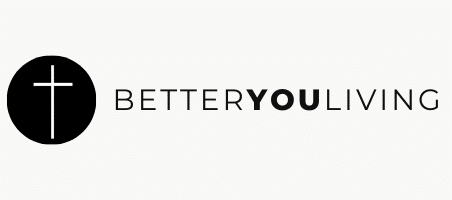Financial Freedom Series – Build Your Own Business (Part 14 – Balance Sheet)
Over the past few weeks, we looked at the terrible reality that 32% of South Africans are unemployed. In South Africa, finding a job can be challenging. And, even if you have a job, you may still be battling to make ends meet.
Have you looked at all your options?
Are you prepared to consider an alternative solution?
Why not consider becoming an entrepreneur?
By starting your own business, you will not need to rely on others.
Could you use your current qualifications, skills, talents, experience, and passions to sell something you believe in, or to provide a service?
Could you offer a simple solution to help solve other people’s everyday problems?
Do you have a unique idea that could add value to others?
In our previous segment, we explored the importance of developing your financial skills.
Having a few good business and financial skills can be the difference between your business failing and succeeding.
Plan for success:
Many businesses fail within the first year or two due to poor financial management and a lack of basic business skills. Applying a few of the principles outlined above will give your business a better chance of success.
Last week, we examined the importance of generating a profit within your business.
BUSINESS BUDGET (INCOME STATEMENT):
Your Business Budget (Income Statement) will show your business’s NET INCOME for a specific accounting period. It is also sometimes referred to as a Profit and Loss Statement.
It is calculated by subtracting total expenses from total revenue.
You can use your Business Budget (Income Statement) to track your performance over time.
The formula…
YOUR TOTAL REVENUE
-COST OF GOODS SOLD
= GROSS PROFIT
-EXPENSES
=NET PROFIT
In a nutshell…
- Your TOTAL REVENUE is all the money that comes in.
- Your COST OF GOODS SOLD is the cost you spend to make or provide your service.
- GROSS PROFIT is your Total Revenue minus Cost of Goods.
- EXPENSES include your costs incurred in running your business, which include…
- Accounting fees, Advertising costs,
- Sales and marketing costs
- Delivery costs,
- Insurance,
- Maintenance and repairs,
- Office supplies,
- Rent,
- Sales expenses,
- Telephone and internet costs
- Salaries, wages, and commissions paid.
- NET PROFIT is your Gross Profit minus your Expenses.
Your BUSINESS BUDGET (INCOME STATEMENT) will show the FLOW of your CASH…
If you spend less than you earn, you will make a PROFIT (POSITIVE CASH FLOW).
If you spend more than you earn, you will make a LOSS (NEGATIVE CASH FLOW).
You need to make a profit…
To run a successful business, it needs to generate a profit.
If you are not making a profit, you need to either earn more or spend less.
Questions if your business is not making a profit…
Income:
- Are you bringing in enough sales?
- What can you do to improve your sales?
- Can I change my marketing strategy?
- Should I increase the price?
Expenses:
- Am I spending too much?
- Can I produce my product more cost-efficiently?
- Am I wasting money?
- What can I cut back on?
Today, I want to examine how you can build wealth…
YOUR BUSINESS BALANCE SHEET
Your business balance sheet is a financial statement that gives you a snapshot of a company’s financial position.
It will include a breakdown of your business’s assets (items it owns that can be sold and converted to cash), liabilities (debts it owes that it is bound to pay), and shareholders’ equity (the business’s net worth).
Your Business Balance Sheet showcases the balance between what your business OWNS and what it OWES.
Your Business Balance Sheet is an essential tool for assessing your business’s financial health and determining its NET WORTH.
The formula…
ASSETS
– LIABILITIES
=NET WORTH
In a nutshell…
An ASSET refers to any ITEM OF VALUE that can be converted into cash (WHAT YOU OWN)
Your assets include stock, cash, investments, property, and items owned by your business.
Your investment assets have the potential to generate additional income through interest, dividends, and rental income.
A LIABILITY refers to any DEBT you have to repay, usually with interest (WHAT YOU OWE)
Your liabilities include loans, credit cards, money you owe suppliers, tax you owe, mortgage, and vehicle finance.
Your liabilities will increase your expenses, causing more money to flow OUT of your income statement.
Your BUSINESS BALANCE SHEET will give you a good understanding of your NET WEALTH.
To create wealth, you need to earn more than you spend, shrink your liabilities, and convert more of your income into assets.
Make sure that some of your assets remain liquid (accessible in the event of a need or opportunity arising).
Questions if your business is not building wealth…
- Can I cut back on my liabilities?
- What can I sell?
- Can I earn more and convert more of my income into assets?
- One of the biggest business killers is cash flow: Do you have enough liquid assets? Can you build up contingency funds that you have access to, should a need or opportunity arise?
“Good planning and hard work lead to prosperity, but hasty shortcuts lead to poverty.” (Proverbs 21:5)
I want to encourage you to…
- KEEP YOUR EXPENSES IN CHECK.
- BE CAREFUL TO KEEP YOUR EXPENSES AS LOW AS POSSIBLE.
- SPEND LESS THAN YOU EARN
- SAVE BEFORE YOU SPEND.
- INVEST TO BUILD UP ASSETS.
If your money management isn’t working, then be prepared to make changes.
- Increase your REVENUE (look at innovative ways to increase your income.
- Reduce your EXPENSES and keep them as low as possible
- Shrink your DEBTS
- Focus on the bottom line. You need to make a PROFIT.
- Divert as much of your PROFIT (SURPLUS INCOME) into ASSETS
- Build your NET WORTH. Continually increase your ASSETS.
May God open doors of opportunity, give you wisdom, and take you on an adventure as you build your business. May God bless your business.
Please do not do it alone. Ask God for guidance. He wants to lead you.
Next week, we will continue to INSPIRE you and give you PRACTICAL TOOLS and INSIGHT to help you BUILD YOUR OWN BUSINESS to attain FINANCIAL FREEDOM while HONORING GOD.






